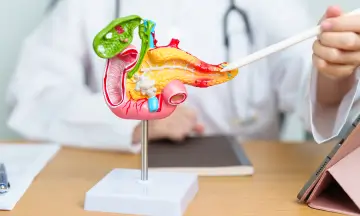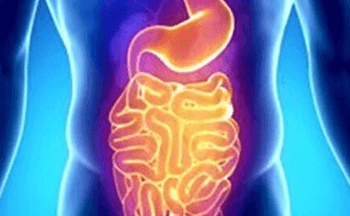
Inflammatory Bowel Disease (IBD) is a term that refers to a group of chronic conditions affecting the gastrointestinal system. Crohn's disease and ulcerative colitis are the main subtypes in IBD. IBD primarily affects intestine, but can also involve joints, eyes, liver, skin, and pancrease.
What is Inflammatory Bowel Disease?
IBD involves inflammation of the gastrointestinal (GI) tract. The GI tract is a complex system responsible for breaking down and absorbing nutrients from the food we consume. When this system becomes inflamed, it can lead to a variety of uncomfortable and often debilitating symptoms.
Types of Inflammatory Bowel Disease
1.
Crohn's Disease:
- Crohn's disease can affect any part of the GI tract, from the mouth to the anus.
- Inflammation of the GI tract can lead to ulcers, narrowing of the intestinal lumen, and rarely perforation of the intestine.
- Common symptoms include abdominal pain, diarrhea, blood or mucous in stool, fatigue, and weight loss.
2.
Ulcerative Colitis:
- This condition specifically affects the large intestine.
- Inflammation can be limited to the rectum or can involve the entire large intestine.
- Symptoms may include bloody diarrhea, abdominal cramps, and urgency to empty stools.
Causes and Triggers
The exact cause of inflammatory bowel disease remains unknown, but it is believed to result from a combination of genetic, environmental, and immune system factors. Certain triggers can exacerbate symptoms or lead to flare-ups, including stress, diet, drugs, and infections.
Recognizing Symptoms
Identifying IBD symptoms early is crucial for timely diagnosis and management. Symptom severity may vary depending on the extent of small and large intestines involved. Common symptoms include:
- Persistent diarrhea
- Abdominal pain or cramping
- Mucous or blood in stool
- Unintended weight loss
- Fatigue
If you or someone you know experiences these symptoms regularly, it's essential to consult a
healthcare professional for a proper evaluation.
Diagnosis
Diagnosing IBD typically involves a combination of medical history, physical examination, and various tests. These may include:
- Medical history
- Physical examination
- Various tests, including blood and stool tests, colonoscopy and gastroduodenoscopy, imaging studies (CT enterography or MRI enterography),
These examinations help doctors determine the extent and severity of inflammation.
Management and Treatment
Treatment of IBD depends on the severity and extent of the disease. In the present era, various treatment options are available and they can control inflammation, alleviate symptoms, and improve overall quality of life. Medications, including immunomodulators and biologics, are commonly prescribed based on the type and severity of the disease.
In some cases, surgery may be necessary, especially if complications such as bowel obstructions or perforations arise. Surgery can involve removing damaged portions of the intestine to provide relief.
Lifestyle Considerations
Adopting a healthy lifestyle can significantly contribute to managing IBD. This includes:
Additionally, avoiding tobacco products is crucial, as smoking has been linked to worsening symptoms and complications in individuals with Crohn's disease.
Conclusion
Inflammatory Bowel Disease is a chronic condition that requires lifelong management. Understanding the basics of IBD, recognizing symptoms, and seeking early medical intervention are crucial steps toward effectively managing the disease. While living with IBD may pose challenges, proper treatment, lifestyle adjustments, and a supportive healthcare team can empower individuals to lead fulfilling lives despite the complexities of their condition. If you think you might have IBD or are worried about your digestive health, talk to a healthcare professional at Sakra World Hospital for personalized guidance and care.
















